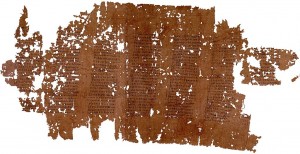
Plato’s Phaedrus
The Project
The Phaedrus depicts Socrates’ most explicit and direct attempt to turn a friend to “philosophy.” Yet this overall theme has been obscured by the dialogue’s—and subsequent scholarship’s—intense focus on subsidiary concepts: rhetoric, erôs, the career of human soul, and writing. Worse, the few readers who have asked about the nature of this exhorted “philosophy” have inferred big claims, generally about Plato’s ideal of Form-contemplation, from insufficient evidence. Remarks in the so-called Palinode (which includes the Myth of the Charioteer) have, for these readers, cancelled out Socrates’ remarks on philosophy—as a social and dialogical practice of excellent and friendly conversation—elsewhere in the dialogue.
My manuscript on this dialogue studies Socrates’ practice of philosophy and his maneuvers against Phaedrus as we see them played out and described by Plato. The imputation that the rhetorician uses psychagôgia—a term with meanings of necromancy, compulsion, deception, and transit to or from afterlife—is given special attention; in particular, it has an overtly ambivalent ethical quality. For the first time among commentaries on the Phaedrus, this book sets out and analyzes every sequential argument in the dialogue; in doing so, it finds that all are obviously invalid. The book argues from this fact that Socrates puts Phaedrus through exactly the kind of rhetorical manipulation Socrates warned him about, and shows the reader that sequential argument must receive just as much critical scrutiny as vivid mythological imagery.
My Phaedrus articles [drafts available on “Publications” page]
- “Deception and Knowledge in Plato’s Phaedrus” (Ancient Philosophy)
- “How to ‘Know Thyself’ in Plato’s Phaedrus” (Apeiron)
- “The Myth of Theuth in the Phaedrus” (Plato and Myths)
- “Socrates Psychagogos” (Socratica III)
- “Pindar’s Charioteer in Plato’s Phaedrus” (Classical Quarterly)
- “Arguing for the Immortality in the Palinode of the Phaedrus” (Philosophy & Rhetoric)
- “‘Philosophia‘ in Plato’s Phaedrus” (manuscript)
- “What is wrong with Lysias’ speech?” (work in progress)
Others’ recent books on the Phaedrus
- A. Capra, Plato’s Four Muses: the Phaedrus and the Poetics of Philosophy (CHS, 2015)
- J. Rapp, Ordinary oblivion and the self unmoored: reading Plato’s Phaedrus and writing the soul (Fordham, 2014)
- M. Carvalho, A. Caeiro, H. Telo, In the Mirror of the Phaedrus (Academia Verlag, 2013)
- M. Bradley, Who is Phaedrus?: keys to Plato’s Dyad masterpiece (Pickwick, 2012)
- D. Werner, Myth and Philosophy in Plato’s Phaedrus (Cambridge, 2012) [my review]
- P. Ryan, Plato’s Phaedrus: A Commentary for Greek Readers (Oklahoma, 2012) [my review]
- H. Yunis, Plato: Phaedrus (Cambridge, 2011) [my review]
Curricular objectives
The Phaedrus draws students to it like few other works of philosophy, especially with its critique of writing, the three speeches’ alternative phenomenologies of love, and the symbolicity of the Palinode. It also depicts a certain — if not altogether familiar, or available — mode of tutelage, apparently a specially philosophical, or complete, pedagogy. It hints at the doubts one might have about scientific reductionism, and simultaneously at the difficulty of speaking articulately about the soul as an object of study or manipulation.
